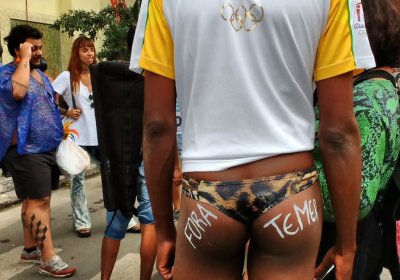There is joy in Olympic Rio, make no mistake about it. Maybe it takes two hours to travel 25 miles across the city; and maybe only 15% of the Olympic decorations were delivered; and maybe there are more soldiers on the ground, per capita, than the United States had in Iraq at the height of Bush’s war; but there is joy.
Rio 2016
With the highest record of Olympic medals in Latin America, Cuba owes its sports achievements to its socialist revolution. The devastating US blockade on Cuba, which has lasted for more than 50 years and includes restrictions on the nation's sporting industry, has not stopped the island from becoming the most successful Latin American country in Olympics history.
The US’s first Black swimmer to win a gold medal, Simone Manuel, dedicated her win to ending police brutality on August 11. Manuel tied with Penny Oleksiak from Canada at 52:70 to win gold in the 100 metre freestyle race at the Rio games that day.
When the 2016 Olympic Games began on August 5, it was the culmination of a harrowing, exhausting decade-long battle between the people of Brazil and the demands of those utterly unaccountable, scandal-plagued sports bodies, FIFA and the IOC.
Hosting the 2014 World Cup and then the Olympics back to back with one city, Rio, as the epicentre for both events, has never been done in history — let alone in the post-9/11 world. It would be a challenge for any country. Putting these mega-events in Brazil, for those in the West, must seem like madness.
Palestinian swimmer Mary al-Atrash headed to the Rio 2016 Olympics despite the Israeli occupation making the West Bank-based athlete's training extremely difficult.





